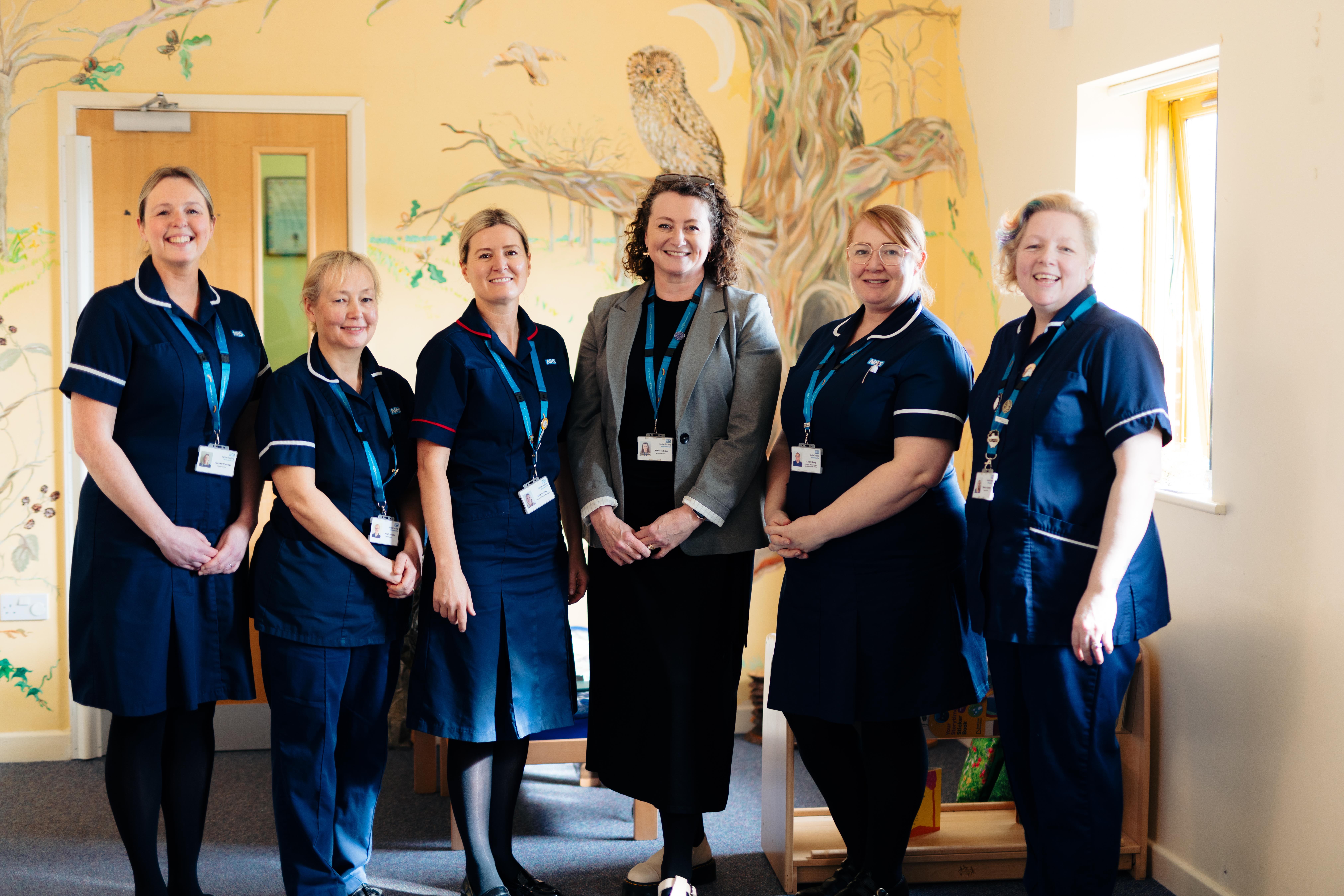“Overwhelmingly positive” results for Royal Foundation-backed early years trial piloted in Hull
Published: 04 April 2024 to 31 December 2098

Health visitors from Humber Teaching NHS Foundation Trust have been involved in a trial, funded by The Royal Foundation Centre for Early Childhood. The trial tested the feasibility of introducing a new baby observation tool to support parent-child interactions and increase the ability of a health visitor to interpret baby behaviour.
The Health Visitors participating in the pilot were trained to use a new tool, known as the Alarm Distress Baby Scale (ADBB). The ADBB tool focuses on looking for social behaviours in a baby including their eye contact, facial expression, vocalisation and levels of activity. This helps practitioners and families to better understand the ways in which babies express themselves and their feelings. The trial ran for 4 months between July and November 2023 and we are now seeing the results.
Health Visitors conduct a number of regular checks on babies during their first years and this tool is typically drawn upon within the 6-8 week check. However, Health Visitors have reported that the training becomes an additional part of their understanding and they continue to draw upon those skills throughout all their contact with families.
The Royal Foundation is the primary charity of The Prince and Princess of Wales. In 2021, The Princess of Wales went on to launch The Royal Foundation Centre for Early Childhood, which drives awareness of the extraordinary impact of the early years in childhood.
The pilot ran in two areas initially, Humber and South Warwickshire, but the outcome of this trial is the recommendation that training be expanded to further areas. The findings of the trial have been set out in an evaluation report published today by The Institute of Health Visiting and The University of Oxford.
Karen Hardy, Specialist Health Visitor at Humber Teaching NHS Foundation Trust said,
“We were delighted to have been asked by The Royal Foundation for Early Childhood to take part in this trial. Our Health Visitors have found the training extremely useful and an additional element for them to draw upon throughout all their interactions with babies and parents. Having received the training myself, I can speak to its effectiveness at identifying needs of the baby and parent during those early weeks.
We know that babies are born ready to relate and can communicate how they are feeling from a very young age. The ADDB really adds to the health visitor’s skills repertoire aiding observation and interpretation of babies’ social cues and communication. This not only highlights when things are going well but enables early identification of babies that may be experiencing distress associated with adverse or challenging family circumstances, so that we can put appropriate support in place as early on as possible. It is great to hear that the report is recommending the extension of this training to more Health Visitors”.
Executive Director of The Centre for Early Childhood, Christian Guy, said:
“The results of the initial phase of testing are so encouraging. We now want to move quickly to ensure we build on this work, bringing the benefits of this model to more health visitors across the country so that, ultimately, more babies and their families get the support they need to thrive.”
It has been noted that during the trial, the health visitors involved identified behavioural concerns in 10% of the babies they met while using the tool. All identified families were subsequently offered additional support, which ranged from follow-up visits, emotional wellbeing visits and video interaction guidance, as well as connections to Child and Family Centres and referrals to Specialist Perinatal Mental Health and other support services.
Dr Jane Barlow, Professor of Evidence Based Intervention and Policy Evaluation at The University of Oxford, who oversaw the evaluation of the trial said:
“Babies are born with amazing social abilities. They are ready to relate and engage with the world around them, communicating how they feel through their behaviours. Whereas previous approaches have focused on the parents’ perspective, this training has really helped health visitors to ‘read’ the baby during interactions and develop greater sensitivity in terms of the observation of potential attachment and bonding issues that would not have been identified without the training.”
The importance of social and emotional development in the first five years of life, is a significant area of interest for The Centre for Early Childhood and this trial is part of its wider work to promote this aspect of child development. The foundations of healthy child development are laid in early childhood, between pregnancy and the age of five, which is why those earliest years represent such a golden opportunity to make a difference right from the start and why supporting babies and their families during this time, is so vital.
Health Visitors at Humber Teaching Foundation Trust continue to develop and use their training to provide local families with practical and emotional support and advice throughout.
- Summary:
Health visitors from Humber Teaching NHS Foundation Trust have been involved in a trial, funded by The Royal Foundation Centre for Early Childhood. The trial tested the feasibility of introducing a new baby observation tool to support parent-child interactions and increase the ability of a health visitor to interpret baby behaviour.
- Category:









